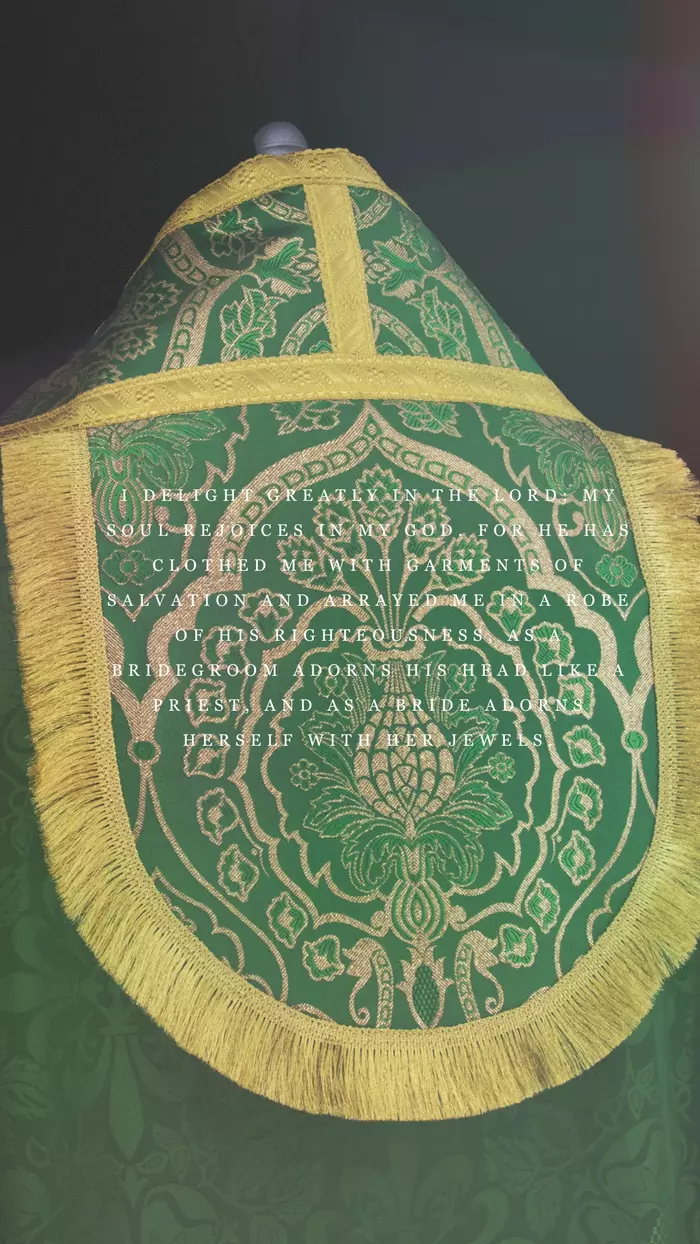Understanding the Cope: A Symbol of Liturgical Heritage
Understanding the Cope: A Symbol of Liturgical Heritage

Today, I want to take a few moments to revisit the topic of the cope—a liturgical vestment rich in history and significance, especially for our new subscribers. Given that it’s been some time since we last discussed this, and we’ve added several new members to our newsletter list, a brief overview seems timely.
The Cope: A Liturgical Vestment
A cope is an important ceremonial garment worn in various Christian denominations, notably in the Roman Catholic, Anglican, and Lutheran churches. Its roots are deeply embedded in the history of ecclesiastical attire, tracing back to the early days of the Christian Church.
Origins and Evolution
Originally, the cope evolved from everyday Roman garments, serving as a practical cloak to shield against the elements. However, as Christianity grew and developed its own rituals, the cope transformed into a more symbolic piece of clothing, reserved for specific religious ceremonies. By the time we reach the 9th to 13th centuries, the cope had firmly established itself as a key component of Western liturgical vestments, particularly recognized for its role in non-Eucharistic services like processions and blessings.
Design and Characteristics
Typically, a cope is a full-length, semi-circular cloak crafted from luxurious fabrics such as silk, brocade, or velvet. It is often adorned with intricate embroidery, jewels, and religious symbols, and is fastened at the front with a clasp known as a morse. The color of the cope varies according to the liturgical calendar—white or gold for major celebrations like Easter and Christmas, and purple for seasons like Advent and Lent.
Symbolism and Significance
Throughout its history, the cope has been a symbol of the clergy’s dignity and authority, as well as a representation of the Church’s enduring tradition. While its design and use have varied across different denominations and historical periods, the cope remains a powerful emblem of the Church’s ritualistic and ceremonial heritage.
Thank you for learning about the cope with us. If you found this interesting, please share it with others who might enjoy it too. Your support means a lot to us!
Soli Deo Gloria
Be sure to visit our online store front Ecclesiastical Sewing where you may shop for Liturgical Fabrics, altar linen fabrics, church vestment-making patterns, liturgical machine embroidery designs, church vestment trims and notions and so much more. You may also find us on Ecclesiastical Sewing on Facebook, Twitter, and Pinterest. Sign up for our mailing list at the bottom of the page on our online store front and receive a free copy of our Small Linens Booklet as our way of saying thank you for following along.
Honoring Church Heritage
Cloaked in Tradition: The Story of the Cope
The Cope–Norris






 RSS - Posts
RSS - Posts
You must be logged in to post a comment.